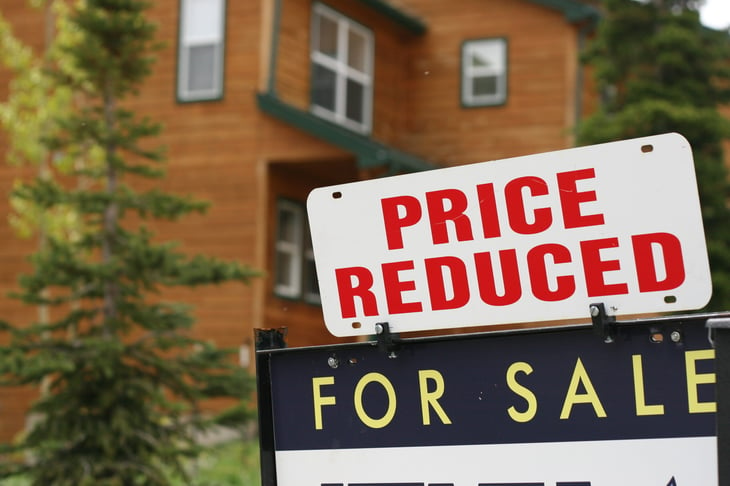
Editor's Note: This story originally appeared on Point2.
Purchasing, selling and even renting real estate is an expensive business. And where there’s big money involved, you can be sure plenty of scammers are looking to take a slice of the pie.
Real estate scams come in all shapes and sizes, and if you’re not careful, it’s all too easy to fall victim to one. Fortunately, if you know what to look for, avoiding falling for one is fairly easy.
In this guide, we’ll discuss the most common real estate scams and look at what you must do to stay safe. First are fake real estate agent scams to be aware of.
1. Fake Real Estate Agents and Other Professionals

Real estate agents and real estate solicitors (lawyers) can be invaluable allies whether you’re buying, selling or renting a property. However, it’s essential to make sure that you research anyone you choose to work with.
Fake agents and solicitors can steal thousands of dollars from unsuspecting victims, typically having them wire huge amounts of cash to their accounts. Once you’ve done that, you’ll never see or hear from them again.
You can avoid falling for these scams by checking out the credentials of anyone you work with. Real estate agents should be fully licensed — and make sure to check that their license is current.
Also, before you move any funds into escrow, check that the escrow account details you have match those that the seller has.
2. Fake Real Estate Agent Viewings

This scam can affect buyers and renters alike and involves a fake real estate agent and duplicate listings. They will arrange a viewing for you, but at the last minute, they’ll call to say they can’t make it.
They’ll then suggest you view the property without them and that the landlord will show you around. As a bonus and to apologize for letting you down, they’ll ensure you get a lower price.
All you have to do is call the real estate agent after the viewing and not sign anything while you’re there.
After the viewing, they’ll be in touch with a fantastic price, but you’ll need to send the deposit as soon as possible to secure it. Of course, if you do, it’ll go to the scammer’s personal account, and you’ll never hear from them again.
You can avoid this scam by going through reputable channels and only working with agents who you know are legitimate.
3. Closing Date Email Hacking Scam

This slightly more sophisticated scam can be harder to detect as it often involves working with a legitimate, certified real estate agent. The scammer hacks the agent’s email account and plays the long game.
They’ll follow your correspondence over the course of a few weeks to get a complete understanding of your transaction, which so far is all above board. But, as the closing date nears, they’ll strike.
The scammer then sends an email from your real estate agent’s account with details of the escrow account in which you need to deposit the down payment. As you can guess, this is, of course, the hacker’s account.
While difficult to detect, it can be avoided by laying out some ground rules in advance. Discuss the escrow process with your agent, insisting that all payment details are to be discussed face-to-face, not via email.
Next are rental scams to steer clear of.
4. Rentals That Are Too Good To Be True

First-time renters are another prime target for scammers, who rely on their typically younger victims being unfamiliar with the rental process and easier to pressure into making a rushed decision.
The most common form of this scam is an online ad — usually a duplicate of a real ad — placed via a more informal channel, such as Craigslist or Facebook Marketplace.
The price will be much lower than anything you’ve seen elsewhere, and the landlord is always in a hurry to find a tenant.
The victim calls the number and arranges a viewing. But, the landlord can only meet you somewhere other than the property to pass on the keys.
They’ll pressure you to pay the deposit, typically in cash, and they might even give you a set of keys. But you can be sure the keys don’t work, and the scammer will be long gone with your money in their pocket.
Always use trusted real estate listing platforms, and never pay a deposit without seeing the place first. If anyone is piling on the pressure while offering you a price that’s too good to be true, walk away.
5. Foreclosed Home Rental Scam

Typically born out of desperation, this scam is relatively easy to avoid but can be tricky to detect initially. Homeowners who are facing foreclosure may occasionally list their home to rent.
Everything will seem legit as you move in and diligently pay the rent, but your time in the house is limited.
As a foreclosed property, it will soon be repossessed by the bank, who will evict you. Fortunately, you can avoid this with a quick online check to see if the property has been foreclosed.
Now let’s move on to scams for buyers to watch out for.
6. Discount Scams

Sometimes, a home comes on the market for an incredible price, often up to 20% lower than comparables.
However, it may be sold under the condition that you sign the purchase agreement without having an inspection carried out.
Unfortunately, the home normally suffers from severe problems, which will probably cost you thousands of dollars to fix.
No matter how incredible the price seems, don’t be pressured into signing the purchase agreement. Work with a reputable agent who can offer sound advice, and never skip the home inspection.
7. Quick-Fix Flips

Unscrupulous property investors looking for a quick sale and a hefty profit may take on a badly damaged house, but rather than carrying out the necessary repairs, they’ll simply cover any problems up with a lick of paint, cleverly placed furniture, or new flooring.
However, these quick fixes could be hiding a multitude of issues.
Don’t be fooled by looks alone, and again, don’t be pressured into signing the purchase agreement without first having a professional home inspection carried out.
8. International Wire Transfer Scams

Nowadays, it’s easier than ever to purchase property abroad without ever leaving the comfort of your office. However, being so far from the action can be dangerous.
When sealing the deal, it’s very easy to be scammed and wire your deposit into a hacker’s account.
Avoid this by working closely with a professional team on the ground and keeping up regular communication, not just by email. If anyone refuses to discuss things over the phone or by video call, walk away.
Finally, here are scams for homeowners and sellers to dodge.
9. Title Fraud

This is a particularly devastating scam that, without taking the proper measures early on, can be hard to defend against.
The fraudster begins by stealing personal information before stealing your identity and using it to transfer your home to their name. Then, they can sell it without you knowing until it’s too late.
These unscrupulous scammers tend to target properties that have had their mortgages paid off, and their victims are often elderly.
The easiest way to defend against it is to take out title insurance. However, it’s also wise to protect any personal data.
10. Foreclosure Fraud

This scam targets homeowners struggling to repay their mortgage who may soon face foreclosure. The scammer swoops in, offering a lifeline in a desperate situation in the form of a loan to help make the payments.
However, this is often a ruse designed to trick the owner into transferring the property title, allowing them to sell or remortgage your home.
The best way to avoid this crime is to never take out a loan from anyone approaching you.
Always seek out loans from reputable sources and speak to your mortgage lender if you’re having trouble making the repayments.
11. ‘We Buy Houses’ Ripoffs

“We Buy Houses” companies aren’t necessarily a scam, but they might not be the best option if you plan to sell.
They tend to buy distressed houses for well under the fair market value before fixing them up and selling them for a profit.
It’s all perfectly legal, but if you’re hoping to get a reasonable price for your home, it’s best to avoid these companies.





Add a Comment
Our Policy: We welcome relevant and respectful comments in order to foster healthy and informative discussions. All other comments may be removed. Comments with links are automatically held for moderation.